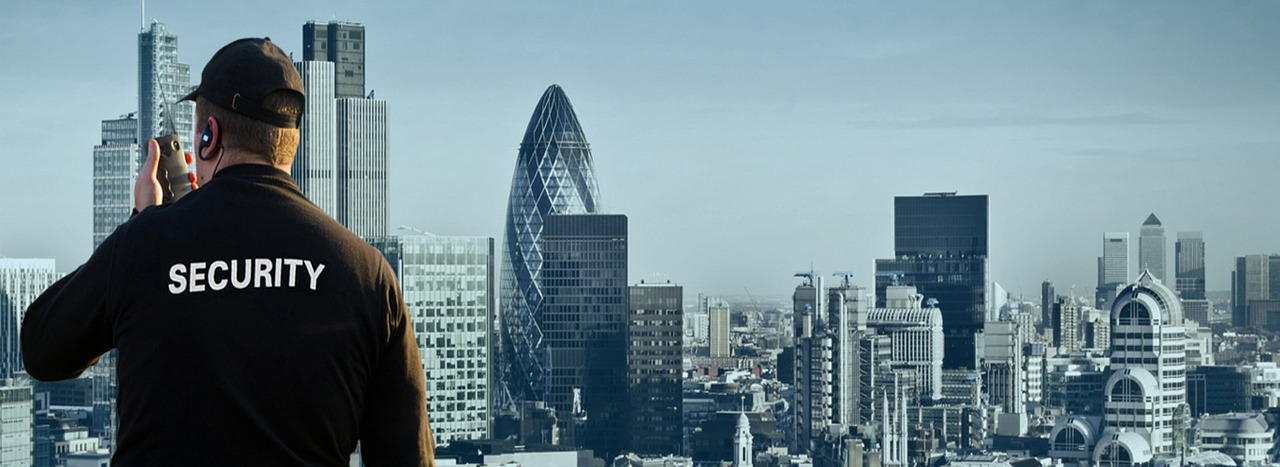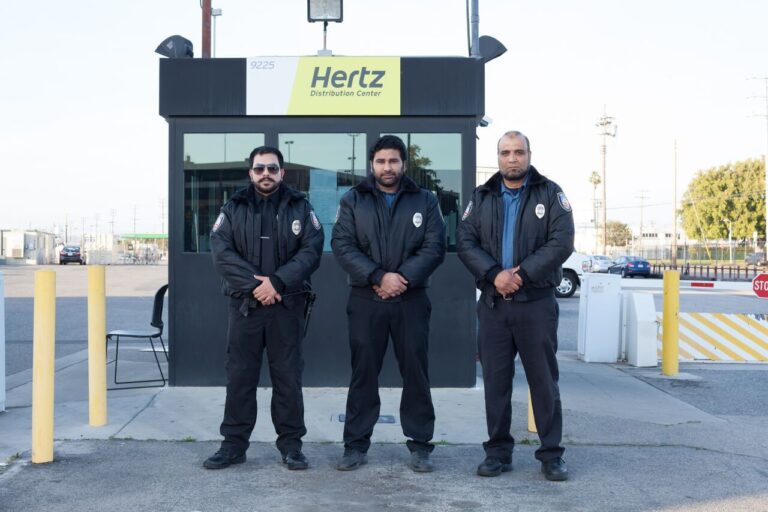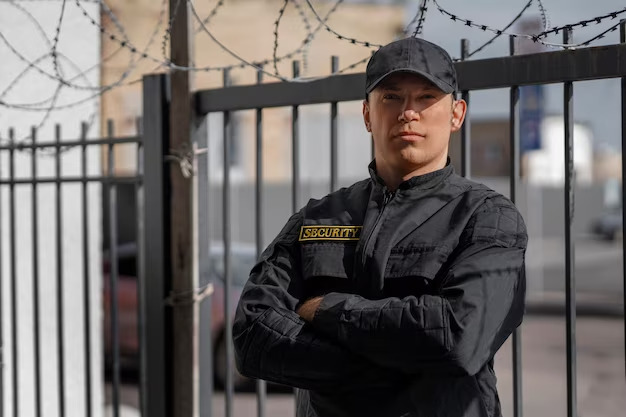As a vibrant urban hub highly known for its job opportunities and diverse population, 24-hour commercial security is crucial for businesses of all sizes in Los Angeles. Regardless of whether it is a small retail shop, a technology firm, or a large corporate office; protecting property, people, and consumers must be a priority for businesses.
Hence, securing your business is best done by procuring 24-hour commercial security guard services in Los Angeles, but how much would it cost? This depends on several elements like the size and category of your company, the level of defense you require, and the type of safety service provider you opt for.
Consequently, let us investigate the expense of 24-hour commercial security in Los Angeles and the determinants that shape its cost.
Factors that affect the cost of 24-hour commercial security
The cost of hiring a commercial security company can depend upon several factors. Here are the key factors that control the price of 24-hour commercial security:
1.Location
The location holds immense importance when deliberating the security costs for a business. Areas with high rates of crime and other major safety risks often necessitate the implementation of more comprehensive safety protocols, thereby causing the costs to rise. In addition, the cost of living and worker compensation within a particular geographical bearing may also influence the compensations given to security personnel.
2.Types of Commercial Property
The kind and goal of your commercial property have a bearing on security expenses. Distinctive companies have individualized security needs. For example, a retail store may need surveillance cameras and loss prevention staff, while a data center might necessitate more sophisticated access control and cyber security steps. The dimensions and plan of your building also affect the cost.
3.Security Personnel
The cost of security personnel depends on numerous factors. Whether the guards are armed or not, the extent of their education, proficiency, and the amount of shifts they have to finish are all elements that affect expenses. Typically, wages for armed guards are higher since they must receive supplementary teaching and greater responsibilities.
4.Advanced Technology and Equipment
Adopting modern safety tech and hardware could optimize the potency of your security system but prove costly at the same time. Potential expenses can encompass monitoring cameras, alert systems, access control systems, and biometric readers. The cost hinges on the complexity and capabilities of the technology.
5.Number of Shifts and Coverage
The extent of security coverage needed impacts cost. For instance, some companies demand 24/7 monitoring, while others might only need night protection. The number of shifts and hours worked by security staff has a direct effect on expenditure. If coverage is extended or several shifts are required, the associated costs will increase.
6.Skills and Expertise
The cost of hiring security is influenced by how experienced and qualified they are. Those who boast prior experience from jobs such as law enforcement or the military may be more expensive to employ, but their knowledge and know-how can be worth the investment due to superior levels of security and the capability to handle unexpected events.
7.Security Services Offered
The total amount of payment for security services will be dependent upon the particular ones needed by your business. Popular aspects of security include physical protection, access limitations, alarm surveys, surveillance and monitoring, and cyber security. Whatever combination of services is chosen for your company will factor into the overall costs.
8.Scalability
The adaptability of your security services to either expand or decrease in size can have an impact on your finances. If your enterprise experiences occasional swings in user activity or expects modifications in its security requirements, having an adjustable security framework can be advantageous. Scalability can adjust to ever-shifting security demands, however, it might lead to variable expenses.
9.Regulatory Compliance
Some industries and companies may find themselves bound to unique protection regulations and conformity necessities. Meeting these responsibilities could necessitate extra security precautions and amplified expenditures.
10.Emergency Response and Speed
Swift reaction services, which guarantee an immediate answer to safety threats, can be more costly but can drastically lessen probable losses during security infractions or crises.
What is the Average Cost of 24-Hour Commercial Security?
The typical rate for all-day commercial security in Los Angeles is $20 to $30 per hour. This implies that the sum you can anticipate spending for security services is between $480 and $720 per day.
Nonetheless, it is crucial to understand that the expense of security will fluctuate depending on different considerations. For example, a sizable retail entity in an area with a high occurrence of crime will more than likely be forced to expend more on security than a smaller workplace in a safe locale.
How to Reduce the Cost of 24-Hour Commercial Security?
Minimizing the expense of 24-hour commercial security is a workable solution for businesses that desire to maximize their security budget without putting safety at risk. Here are a few tactics to assist you in obtaining cost efficiencies while still providing efficient security measures:
- Make sure you evaluate rates from multiple security companies. By comparing prices, you can discover financially viable solutions that satisfy your security needs.
- Carefully analyze your security needs. Specifying your exact security requirements allows you to tailor your security services, preventing unneeded expenses while focusing on important security elements.
- In certain scenarios, security cameras, alarm systems, access control, and motion sensors can be more price-effective alternatives.
- Numerous security organizations grant discounts to customers who sign long-term contracts. By arranging a multi-year agreement, you can gain discounts over the long haul.
- Take into account remote surveillance. This can lessen the necessity for on-site security personnel and decrease costs while keeping up a high level of security.
- Ensure that your security staff obtains continuous training to remain up-to-date with the industry’s greatest practices and technologies. Staff with proper training are more productive, potentially eliminating the need for additional personnel.
- Standard upkeep can increase the life expectancy of security technology and lessen unforeseen repair costs.
Benefits of 24-Hour Commercial Security
The advantages of 24-hour commercial security reach farther than just protection; they make up the keystone of an organization’s success and longevity. Having round-the-clock security systems offers priceless benefits that are vital for today’s businesses.
To begin with, a business must provide 24-hour commercial security to ensure the safeguarding of workers, patrons, and assets. This system creates a secure atmosphere where individuals can work, buy, or transact with complete assurance, cultivating a sense of faith and contentment. Not only is this a legal necessity, but also an ethical pledge to protect human lives and property.
Additionally, 24-hour commercial security serves as an effective deterrent to unlawful activities. By deploying surveillance cameras, security guards, access control systems, and alarm monitoring, organizations are making it known that their establishment is heavily protected. This proactive approach significantly reduces the chances of theft, vandalism, and other security breaches, subsequently protecting businesses financially and safeguarding their good name.
Security infringements and emergencies can occur anytime, day or night. 24-hour commercial security ensures an agile and successful reaction to such episodes. Skilled security staff are equipped to act quickly to security dangers or crises, limiting their result and diminishing potential destruction. Whether managing a break-in, reacting to a health urgency, or confronting a fire, the instant response of security personnel can be the contrast between a minor occurrence and a disastrous episode.
Overall, 24-hour commercial security offers advantages such as safety, deterrence, quick reaction, operational efficacy, and creating trust. It is a prudent investment as part of a business plan to achieve long-term growth and success while concurrently protecting against any foreseeable risks and liabilities.
Conclusion
Investing in 24-hour commercial security in Los Angeles is paramount for companies of all types and sizes. It can provide comprehensive protection, comprising of either security guards or security technology, to deter misconduct and swiftly reply to situations.
The expense of 24-hour business security fluctuates depending on several elements, for example, the type and size of your organization, the degree of security you necessitate, and the security firm you select. Nonetheless, there are several ways of cutting the cost of security, such as comparing costs and scrutinizing rates, concluding a long-term contract, and investing in methods of warding off crime.
The advantages of 24-hour commercial security outweigh its expenses. By investing in 24-hour security, you can minimize law-breaking, spot criminal activity quickly, act upon occurrences competently, and finally, have the assurance that you are secure.
Ultimately, investing in 24-hour commercial security is not merely an expense; it’s a strategic decision to protect and sustain your business in a dynamic and competitive marketplace like Los Angeles.




